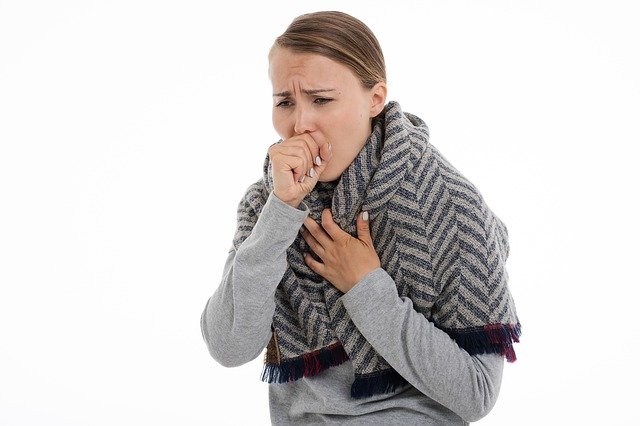Coronavirus infection and germination time
The new coronavirus (SARS-CoV-2) is transmitted primarily as a droplet infection when an infected person coughs or sneezes. In close contact, Korona can also be transmitted through contact if, for example, the patient has coughed his hands and has since touched another person.
>> Is the coronavirus transmitted by air, in the form of small aerosols?
The coronavirus can also be transmitted via the air, i.e. in the form of small aerosols. This means that coughing and sneezing produce not only larger droplets but also very small particles, aerosols, which can remain suspended in the air for a longer period of time. In this case, the infection can also be acquired from a distance of more than 2 meters.
Airborne infections have been observed indoors with poor ventilation. In some cases, the affected person had also breathed strongly, such as singing, shouting, or speaking loudly.
The risk of airborne infection is considered to be lower than the risk of infection due to close contact. In practice, it has not yet been shown that the airborne route of transmission is equally significant.
In everyday life, they reduce the risk of possible airborne infections
• adequate ventilation
• more than 2 meters distance between people
• use of a face mask if sufficient distance to other people cannot be maintained
• limiting the number of people in the same space.
>> Does the coronavirus infect surfaces?
The virus can also be transmitted through contact with surfaces that have recently been exposed to respiratory secretions. However, coronaviruses are structured in such a way that they do not remain contagious on surfaces for long.
In everyday life, the ability of the virus to infect and remain on surfaces is affected by e.g.
• temperature
• without moisture
• air condition
• surface materials.
No food or commodity infections have been detected so far.
Using sensitive laboratory methods, it has been found that the virus can persist on various surfaces for a few hours to up to three days. However, no direct conclusions can be drawn from theoretical studies on how the virus survives in the everyday environment.
According to current knowledge, the role of surfaces in the spread of the virus is not significant.
>> Can the virus be transmitted through waste?
According to expert estimates, getting coronavirus infection through waste is unlikely when normal good waste management practices are followed.
The viability and infectivity of the coronavirus deteriorate rapidly when exposed to humans, and the viruses are unable to multiply in the waste.
>> What is the incubation period for COVID-19?
The incubation period is the time from infection to the beginning of the first symptoms. The incubation period of the disease is estimated to be 1–14 days, with the most common symptoms appearing about 4–5 days after infection.
>> How long does a person have to be infected?
According to current knowledge, a person with coronavirus disease is most contagious at the beginning of the asymptomatic disease and just before the onset of symptoms. The infectious time lasts about a week in mild coronary heart disease and up to two weeks in the most severe forms of the disease.
The infected person can spread the virus 1 to 2 days before the onset of symptoms. An asymptomatic person may also be a source of infection. However, according to the WHO, the majority of infections are caused by symptomatic individuals.
>> What do I do if I have been in contact with someone who has a coronavirus infection?
When a person is diagnosed with a coronavirus infection, the unit responsible for infectious diseases in the municipality finds out who has been exposed and contacts them. However, this can take some time, especially if there are many exposed. Exposed are quarantined.
If you have been in contact with a person who has been diagnosed with a coronavirus infection, it is recommended that you follow voluntary quarantine until you are contacted for health care. This will prevent any possible infection from spreading. You will receive instructions from healthcare on how to proceed.
If contact is not included, you should contact health care yourself. Also, contact your healthcare provider if you develop symptoms consistent with the coronavirus. First, make an assessment of your symptoms in Omaolo.
>> Can coronavirus disease get twice or does the virus become immune?
A diseased disease is likely to produce resistance that can protect the diseased from the asymptomatic or severely symptomatic disease.
Experiments performed under laboratory conditions have shown that after infection, antibodies provide protection against the progression of the infection.
It is known that the amount of antibodies decreases over time, but in most infected antibodies, the antibodies remain measurable for at least several months. However, it is not yet known how much antibody is sufficient to protect against infection.
Following the onset of other serious coronaviruses, such as SARS and MERS, antibodies may be measurable up to 2-3 years after the disease.
Some coronaviruses (229E, HKU1, NL63, and OC43 viruses) occur throughout the year, especially in autumn and winter. They cause mild respiratory infections, after which immunity is shorter, for only a few months.





0 Comments
Please do not enter any spam link in the comment box
Emoji